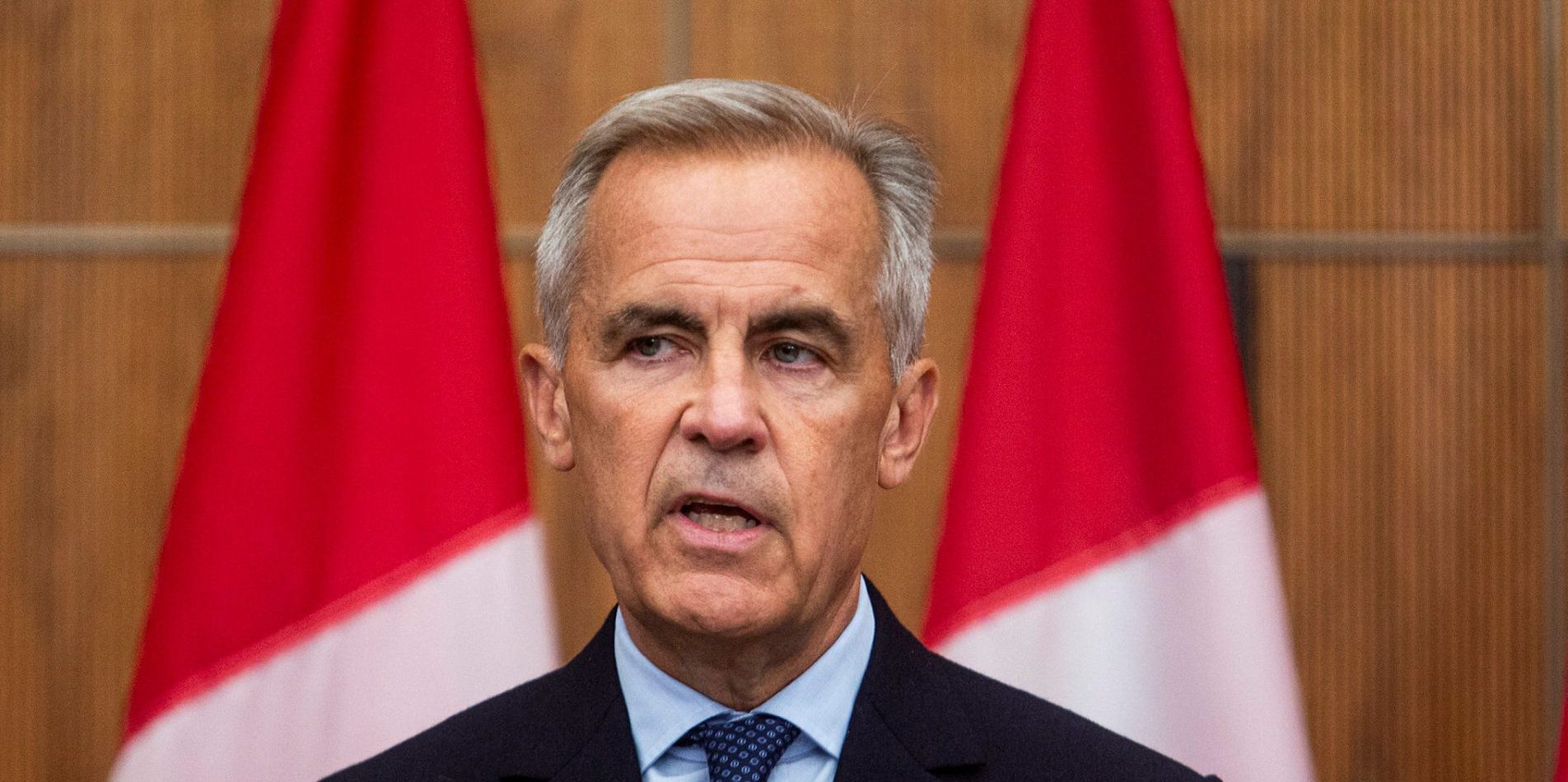U.S. trade approach ‘changes the rules of the game,’ with canola sector leading economic lobbying in first six months of 2025

Economic development advocacy driven by Canada’s canola sector dominated in the first six months of 2025, with canola industry representatives saying that market access has become critical because of the trade instability caused by the United States and China.
“For Canadian business and exporters, writ-large, the approach that the U.S. is taking and how others are responding to that approach are changing the rules of the game,” said Troy Sherman, senior director of government and industry relations for the Canola Council of Canada (CCC). “We have to rethink our approach to trade as a result of this. We have to sharpen our pencils to really articulate what our competitive advantages are when we’re going into some of these markets as well.”
Advocacy related to economic development was the top subject in federal lobbying between January and June. That subject was listed in 3,134 communication reports, and was followed in popularity by international trade, which appeared in 2,870 reports, based on a search of the federal lobbyists’ registry on Aug. 6.
The domestic canola sector was prominent in federal lobbying in the first half of this year. The CCC came out as the most active group lobbying about the economy in that time frame, with 94 communication reports filed. The Canadian Canola Growers Association (CCGA) came in fourth in economic development lobbying by filing 48 communication reports, behind the Aerospace Industries Association of Canada (AIAC) with 55, and the Council of Canadian Innovators with 50.
Sherman told The Hill Times that changes to global trade caused by U.S. President Donald Trump is requiring exporters to throw out the old playbook and rethink their approach to trade.
On Aug. 1, Trump imposed 35-per-cent tariffs on goods from Canada that are not traded under the Canada-United States-Mexico Agreement (CUSMA). On July 31, he also signed an executive order reimposing reciprocal tariffs ranging from 10 per cent to 41 per cent on U.S. imports from dozens of countries, which came into effect on Aug. 7.
Although this country’s canola is CUSMA-compliant and therefore not currently subject to U.S. tariffs, Sherman said “we’re seeing a fast-changing geopolitical landscape and changes to the rules-based order for trade” because of Trump’s preference for bilateral trade deals over multilateral deals.
Canada’s canola industry is export-oriented, with about 90 per cent of canola products sent to markets including Japan, the U.S., China and the European Union, according to Sherman.

“I think that approach [by the U.S.] has really changed the way that we look at trade moving forward, which is no longer just being looked at through the prism of a formal free trade agreement that needs to be ratified and implemented through legislation,” said Sherman.
“We just have to be way more vigilant and way more active, I would say, in some of these markets where we may have long-standing relationships, but it’s going to be even more important for us to continue to maintain and nurture those relationships moving forward, while also pursuing growth opportunities in other markets, as well.”
Brad Setser, a trade expert and a senior fellow with the Council on Foreign Relations (CFR), argued in a video posted by the CFR to YouTube on July 31 that Trump has changed the meaning of trade deals. In the video, Setser argued that the Americans’ traditional approach to negotiating detailed, congressionally-approved trade pacts has been replaced by deals aimed mainly at preventing trading partners from retaliating against higher U.S. tariffs, and that these new agreements often lack fully developed commitments.
“What President Trump has done is he’s used delegated authority to raise tariffs on his own without input from Congress. He did so under an interpretation of the International Emergency Economic Powers Act, which basically gives him the ability to raise and lower tariffs at the stroke of his pen,” said Setser in the video.
“But since the president is using authority that he believes he has to essentially raise tariffs, the threshold for a deal is much lower. All it takes for a deal is for there to be enough for the president to decide he’s not going to raise tariffs to the level that he has threatened. He can raise tariffs with his pen. He can lower tariffs with his pen.”
In another video posted on Aug. 6, Setser argued that every trade deal with Trump should be viewed as an interim deal subject to future changes “because that’s how the president thinks about tariffs.”
At the end of July, the CCC released a new strategic framework intended to support the canola sector in navigating challenges, including the “increased complexity and volatility from trade and market uncertainty.”
The framework sets priorities including strengthening the access of this country’s canola and canola products in international markets, and growing the volume of Canadian canola to meet domestic and global market needs.
“When we talk about diversification for the Canadian canola industry, we’re not just talking about different geographic markets. We’re also talking about different end uses for canola … and one of the biggest opportunities that we face right now is the growing biofuel market, both in Canada and in North America more generally, and so that has been and will be even more of a focus for us moving forward,” said Sherman.
“We’re also looking for regulatory reforms to some of the key agencies that impact Canadian agriculture and the canola industry … including mandate changes for the Pest Management Regulatory Agency and the Canadian Food Inspection Agency so that they consider economic and competitiveness factors as part of their regulatory responsibilities moving forward.”
In the first six months of 2025, the CCC’s advocacy included communication with International Trade Minister Maninder Sidhu (Brampton East, Ont.) on June 10, and with Agriculture Minister Heath MacDonald (Malpeque, P.E.I.) on May 14, June 4, and June 10.
In response to the U.S. increasing tariffs to 35 per cent on Canadian exports not covered under CUSMA, Prime Minister Mark Carney (Nepean, Ont.) said in a statement on Aug. 1 that the federal government is disappointed, but remains committed to CUSMA.
“While we will continue to negotiate with the United States on our trading relationship, the Canadian government is laser focused on what we can control: building Canada strong,” said Carney in the statement. “We can give ourselves more than any foreign government can ever take away by building with Canadian workers and by using Canadian resources to benefit all Canadians.”
Another major concern for the canola sector in recent months has been a staggering 100-per-cent tariff on this country’s canola oil and meal—as well as a 25-per-cent levy on goods such as pork and seafood— imposed by China on March 20, 2025. These tariffs were implemented following Canada’s imposition of tariffs on Chinese electric vehicles at 100 per cent, and on aluminum and steel at 25 per cent. China is also currently conducting an anti-dumping investigation into imports of Canadian canola seed, which was launched in September 2024.
China is typically Canada’s second-largest market for canola, and imported approximately $4-billion of Canadian canola seed, and another $920.9-million of canola meal and $21-million of canola oil in 2024, according to the CCC.
Gayle McLaughlin, senior manager of government and industry relations for the CCGA, told The Hill Times that her organization’s focus in federal advocacy so far in 2025 was been on the importance of normalizing trade with the U.S. and China as key canola markets.

“I don’t think we’ve seen this level of unpredictability in our two most important markets: China and the United States. I think on that front, it can be unprecedented,” said McLaughlin. “On the U.S. front, it has been very concerning for canola farmers as well, just because that is our number one market for canola oil and meal … Luckily, right now, our canola oil, meal and seed are CUSMA-compliant, so they’re tariff-free right now, but that needs to stay that way.”
On June 5, Carney and China Premier Li Qiang discussed bilateral relations and trade between the two countries, according to a statement from the Prime Minister’s Office.
Carney “took the opportunity to raise trade irritants affecting agriculture and agri-food products, including canola and seafood, as well as other issues, with Premier Li,” reads the statement.
“I think we’re just focused on ensuring that our market access gets reinstated, and we hope that the government prioritizes that, because canola farmers, they are still export-oriented,” said McLaughlin.
“No matter what happens in the geopolitical world, that’s going to be important to our farmers to have market access for their livelihoods and also for their ability to contribute to the Canadian economy and their rural communities.”
The CCGA communicated with MacDonald on May 28, on June 4 and June 14.
The Hill Times reached out to the AIAC to discuss its advocacy priorities during the first six months of 2025, but an interview could not be arranged by deadline. AIAC’s president and CEO Mike Mueller previously told The Hill Times that economic development formed a key pillar of the organization’s advocacy with the new Liberal government, as previously reported on June 23.
In an emailed statement on June 18, Mueller said that Canada lacks a “cohesive industrial strategy to fully harness our aerospace potential,” and that the AIAC has been engaging the federal government to ensure aerospace is recognized as a strategic priority and “a key focus of Aerospace and Defence Industrial Strategies.”
The AIAC’s advocacy in 2025 have included communications with Sidhu on May 29, with Industry Minister Mélanie Joly (Ahuntsic-Cartierville, Que.) on June 4 and June 16, and with Minister of National Defence David McGuinty (Ottawa South, Ont.) on June 10.
jcnockaert@hilltimes.com
The Hill Times
Top Economic Development Lobbying Organizations (January to June 2025)
| Organization | Communication reports |
| Canola Council of Canada | 94 |
| Aerospace Industries Association of Canada | 55 |
| Council of Canadian Innovators | 50 |
| Canadian Canola Growers Association | 48 |
| Cité de l’innovation circulaire et durable | 44 |
| Industries Lassonde | 43 |
| Enbridge | 41 |
| Bruce Power | 39 |
| Telesat Canada | 38 |
The above table shows the organizations that filed the most communication reports for activity between January and June listing economic development as a subject for discussion. Based on a search of the federal lobbyists’ registry on Aug. 6, 2025.






 LICENSING
LICENSING PODCAST
PODCAST ALERTS
ALERTS













